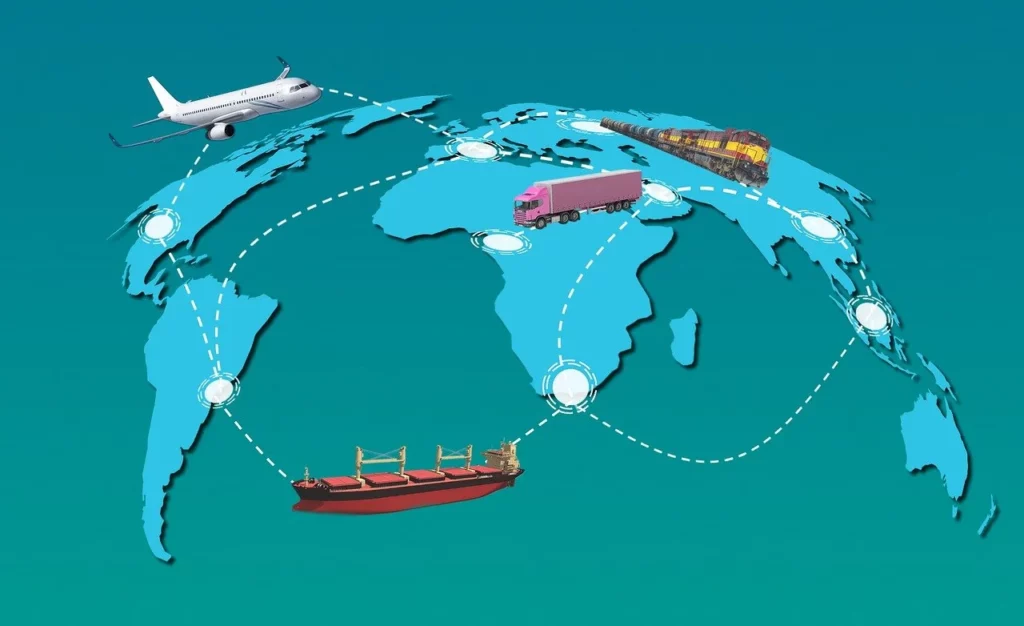When it comes to the acquisition, sale, or transit of goods, inputs, and services between countries, businesses, and professionals that use software, strategies, processes, and best practices in international logistics continue to face challenges. Such constraints date back to the Covid-19 epidemic and are still present today due to political turmoil and the wars in Ukraine and Russia, which still involve the US and China.
Many businesses seek to diversify their suppliers of goods, inputs, and services as well as their partners who assist in changing processes, procedures, and all business-related technology for these and other reasons. As a result, businesses in nation A that previously purchased goods from nation B now have to find new suppliers and begin importing goods from nation C, a process that experts have already termed as “reglobalization.”
In light of this, the phrase “global supply chain” is associated with this reglobalization.
What Effect Does the Global Supply Chain Have on the COMEX?
Many organizations, enterprises, and professionals seek beyond their own companies. To prevent disruptions and delays in their own enterprises, they also keep an eye on the operations, procedures, and technologies of their suppliers, clients, and other business partners. The Global Supply Chain is a network of best global logistics practices, software, strategies, and governance norms that connect everything and everyone.
According to a report recently released by Bloomberg, the USA set a record for exports and imports last year, reaching an astounding 73 countries that received exports from North America and imports from 90 nations, totaling US$ 690.6 billion. This gives you an idea of how the Global Supply Chain is one of the cogs that move the world.
Another significant piece of information comes from the Danish shipping giant Maersk, which is known as the “thermometer of global trade” and is in charge of carrying roughly 16% of all containers worldwide. According to the company, sluggish economic development would cause a 2.5% reduction in global container transport volumes in 2023. Because of this, what was once above-average consumption is now sharply changing, and as a result, is considering a restructuring to link and integrate its land, sea, and air activities.
The renowned shipping firm has already begun to implement some steps, such as downsizing ships, increasing air freight services, and creating a network of scattered facilities, to help it manage cargo flows. This entire rearranging of the game pieces supports the concept of reglobalization.
The Influence of Flexible Technologies on Reglobalization in the Global Supply Chain
Some people perceive issues, while others see opportunities. Because the reality is that the current situation provides a fantastic road map for reinvention, this adage from the business world is more true than ever. Determining whether professionals are performing their tasks correctly is one of the major obstacles in the global supply chain, rather than understanding what they should be doing.
In addition to this difficulty, the situation becomes even more complicated when you consider that firms involved in the global supply chain tend to encounter greater volatility in the coming years, causing organizations and leaders to constantly reinvent themselves. It’s crucial to invest quickly and strategically, focusing primarily on technologies and business processes that can adapt to the rise and fall of “global business waves”.
Last but not least, companies that want or need to be in line with this new future essentially need to concentrate on four areas of innovation: commercial; achieving sustainable results; real-time decision-making; and the focus on people.
But how should one go about doing this? Understanding experts, customers, suppliers, and business partners, as well as what expectations to explore to deliver competitive advantages, are among the top priorities for the exclusive innovation plan for the upcoming years. Modern software does not need the infamous and expensive adjustments that are required for businesses that use “each new wave of business” in the global supply chain, making artificial intelligence a powerful companion. Otherwise, investments in these solutions will not lead to significant reglobalization of business.



